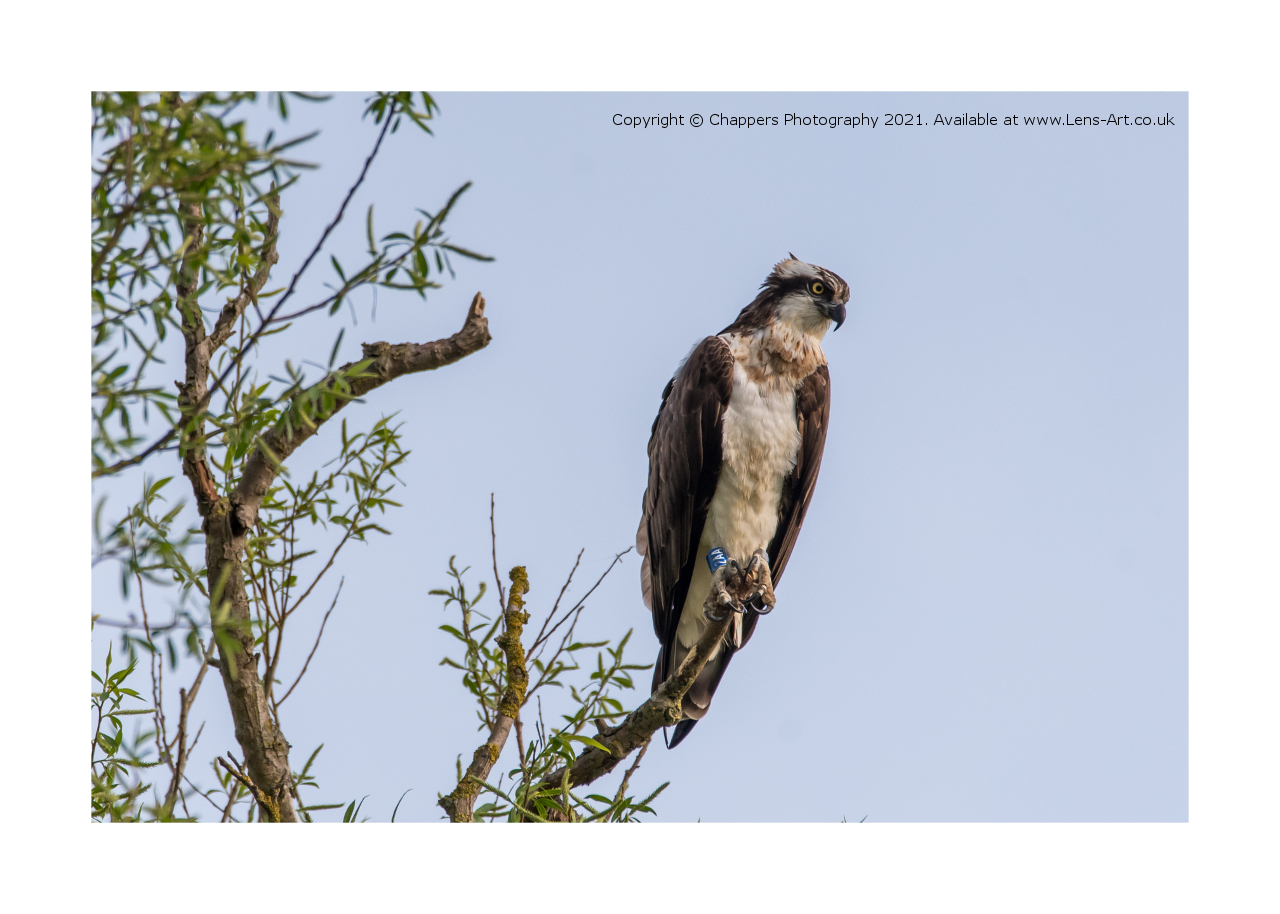LCA101173 - Osprey
(by Chappers Photography)
(The copyright signature will not appear on
the final printed product)
 |
|
This print is available
This print is available (UK
only) in the following sizes:
36" x 24" Canvas (no border) - £79.99
24" x 16" Canvas (no border) - £59.99
18" x 12" Canvas (no border) - £44.99
*All canvases come with a 20mm frame and reversed
edge as standard.
36" x 24" Fine Art Print (2" border) - £59.99
24" x 16" Fine Art Print (1.5" border) - £42.99
18" x 12" Fine Art Print (1" border) - £29.99
OR with 5mm border:
36" x 24" Fine Art Print (5mm border) - £59.99
24" x 16" Fine Art Print (5mm border) - £42.99
18" x 12" Fine Art Print (5mm border) - £29.99
(Fine Art Print Options - Satin or Matt finish)
12" x 8" Welsh slate (no border) - £34.99
(free P&P in UK)
Terms & Conditions
|
|
|
Osprey’s are a large bird of prey
that can be found in several locations all over the world.
They can tolerate a large range of habitats providing there is
sufficient water and fish supply near-by. The UK’s Ospreys
will migrate south to Africa during the winter often stopping
to feed for several weeks in locations across southern Europe.
It is a large fish-eating large
raptor, reaching more than 60 cm in length and 180 cm across
the wings. It is brown on the upperparts and predominantly
greyish on the head with white underparts. It possesses
specialised physical characteristics and exhibits unique
behaviour to assist in hunting and catching prey. As a result
of these unique characteristics, it has been given its own
taxonomic genus and behaves unlike any other bird of prey.
This image was taken close to
Rutland water (Horn Mill Osprey Hide), where the population
has risen steadily since the birds were reintroduced to the
area in the 1990s. Historically, ospreys were widespread
throughout the UK, but were driven to extinction by man. The
Leicestershire & Rutland Wildlife Trust and Anglian Water
worked together to instigate a reintroduction project to bring
the osprey back to England. A true good news conservation
wildlife story, where Humans have helped to reverse the plight
of our wildlife. Although the birds fly close to the hide to
collect one of the masses of captive fish the art of
photographing them is no easy feat. The staff at the hide are
watching from above and let you know when an osprey is coming
in, but they can perch for ages and when they do dive you have
a matter of seconds to find the bird in your view find, focus
your camera and press the button at the right moment. This
image was taken just before a dive.
https://www.rivergwashtroutfarm.co.uk/horn-mill-osprey-hide/ |
|